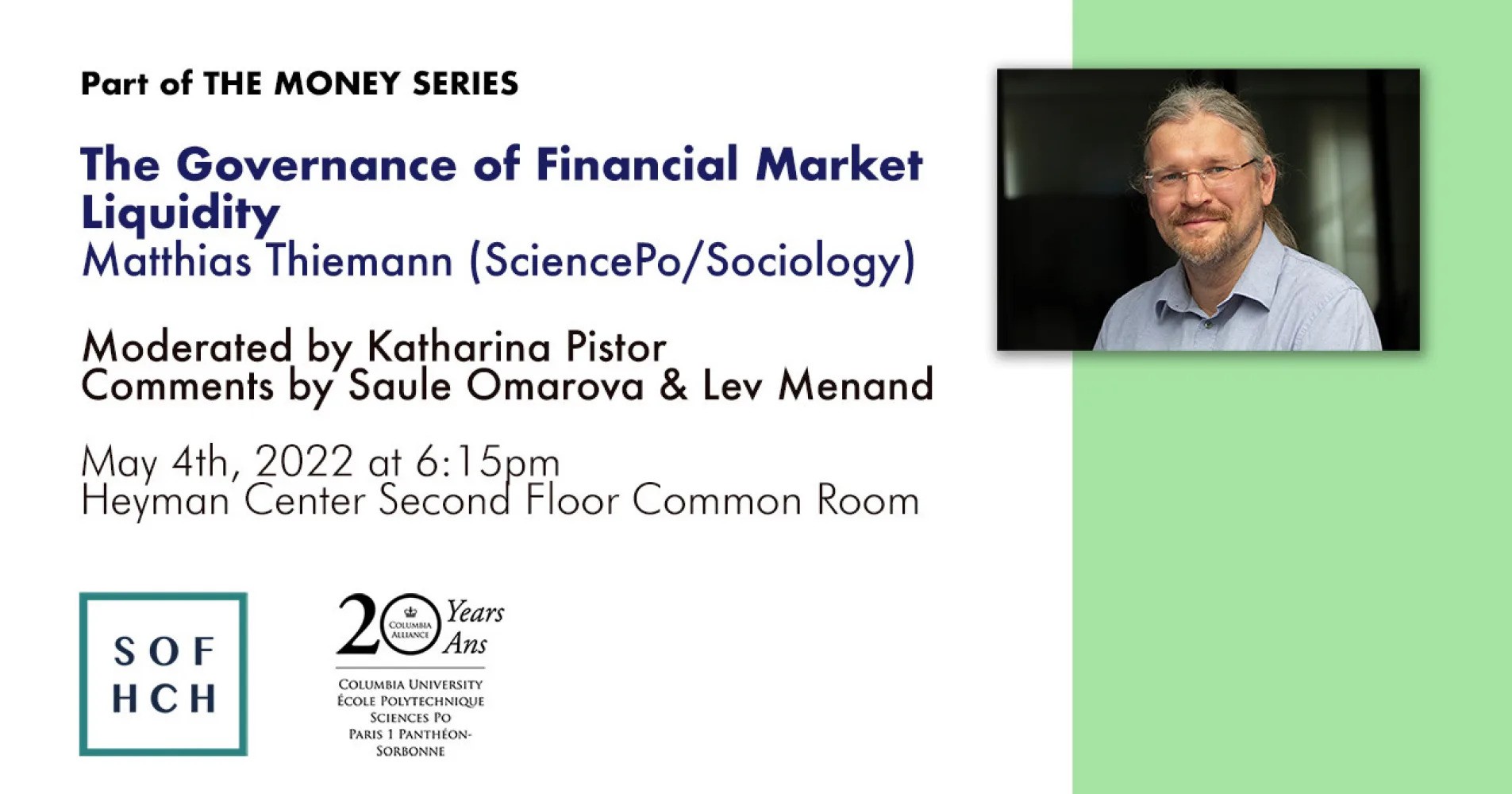Financial Market Liquidity, that is the ease at which assets can be sold and bought in financial markets has been a major concern for regulators and central banks for at least the last 30 years. Initially concerned with the potential lack of liquidity in times of crisis, linked to the regulatory goal of deepening liquid (repo) markets, these concerns broadened following the financial crisis. The new problematization suggested that there could also be an overabundance of market and funding liquidity, nurturing risk taking and a perilous search for yield. This talk traces the translation of this new systemic problematization of overabundant liquidity in boom times in the context of the unfolding regulation of shadow banking since 2010, showing both its prominence in the analytical reasoning by central bankers and prudential regulators and its very limited, coarse translation in regulatory measures. To explain the latter, the talk points to the structural links and engagements central banks have taken post-crisis with respect to market liquidity and the limited capacity to reach beyond the banking sector in terms of regulation.
Matthias Thiemann is Associate Professor for European Public Policy at Sciences Po Paris. A sociologist by training (PhD Columbia University, 2012), his work investigates the shifting regulation of financial markets pre- and post-financial crises, with a particular focus on the attempts to regulate the "shadow banking system", a system of credit-intermediation involving entities and activities outside of the banking system. His work has appeared in journals such as the American Journal of Sociology, the Journal of European Public Policy, the Review of International Political Economy, and New Political Economy, among others. In 2018, he published a monograph at Cambridge University Press, seeking to explain the structural conditions for the lenient regulation of the shadow banking system pre-crisis."
Lev Menand is an associate professor of law at Columbia Law School. His research focuses on money and banking, central banking, and financial regulation. He is the author of a forthcoming book on the Federal Reserve, The Fed Unbound: Central Banking in a Time of Crisis. Previously, Menand served as senior adviser to the deputy secretary of the Treasury and as senior adviser to the assistant secretary for Financial Institutions. He has also worked at the Federal Reserve Bank of New York and the Financial Stability Oversight Council.
Saule T. Omarova is the Beth and Marc Goldberg Professor of Law at Cornell University, Director of Cornell’s Jack Clarke Program on the Law and Regulation of Financial Institutions and Markets, and a Senior Fellow at the Roosevelt Institute. Professor Omarova’s academic research focuses on systemic risk regulation and structural trends in financial markets, banking law, financial technology, and political economy of finance. Prior to joining academia, she practiced law at Davis Polk & Wardwell, a premier New York law firm, and served at the U.S. Department of the Treasury as a Special Advisor for Regulatory Policy to the Under Secretary for Domestic Finance. In 2021, Professor Omarova was President Biden’s nominee for the post of the U.S. Comptroller of the Currency. She holds a Ph.D. degree in Political Science from the University of Wisconsin-Madison and a J.D. degree from Northwestern University.
Katharina Pistor is the Edwin B. Parker Professor of Comparative Law at Columbia Law School and director of the Law School’s Center on Global Legal Transformation. Her work spans comparative law and corporate governance, law and finance, and law and development. Her most recent book is “The Code of Capital: How the Law Creates Wealth and Inequality” (2019).

